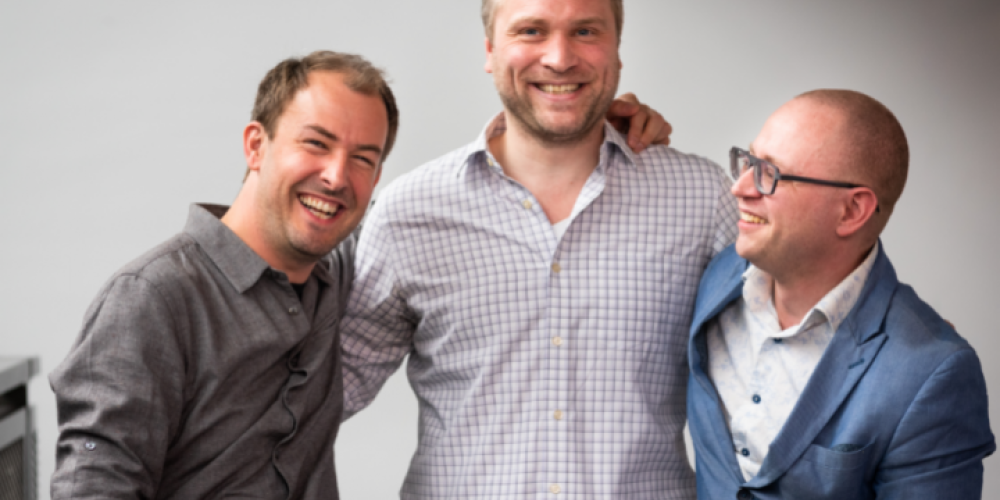
Chief science officer Pieter De Leenheer and CEO Felix Van De Maele both live in New York, but De Leenheer has flown here to talk about a new collaboration. “We want to work with VUB to set up an AI research centre,” he says. “Even though we’ve flown the nest, the values of this university are still in our DNA. You can see it on our learning platform – university.collibra.com – which is free for everyone. If you’re talking about the democratisation of data, then you have to give an insight into the tools you’re using.”
Chief technology officer Stijn Christiaens also carries the spirit of VUB with him. “In the lab, the culture of stubbornness was noticeable. Professor Meersman called our methodology ‘dogma’, for a joke. That stood for ‘developing, ontology, guidance and mediated applications’. So we had a dogma at university after all! The research itself also had this culture. The rest of the world was preoccupied with the semantic web, and we were the salmon swimming against the flow. Data governance has existed for decades but our method turned out to be the best way: namely that ownership and responsibility for data must lie with a business itself, because it acts on it. With each new client we have to evangelise about what they can and can’t do with data. But this defensive side of data strategy is just one side of the coin. If you only defend your own goal, you will never score. You also need an offensive strategy, a way to earn money with data.”
Luck is above all a question of timing
A question of luck?
“Luck is above all a question of timing,” De Leenheer says. Christiaens: “Everything came together: the BI³ venture capital fund, the perfect Big Data storm of 2008, the arrival of social media and the financial crisis a few months later. After years of deregulation, banks had to prove to the authorities that they were managing their data efficiently and safely. For that, they needed a software platform like Collibra. Now eight of the ten biggest banks are our clients. People often say we’re doing well. That always makes me nervous. For me, that’s not good enough. Practically, you can of course define success, such as our unicorn status. Since 2012 we have seen triple-digit growth, 260-300% in our turnover. This year we have 700 employees. The question is, do we remain independent or will we be taken over by Microsoft or Google?”
Co-founder Damien Trog doesn’t know if he’d call it luck. “There was certainly the crisis, which turned out well for us. But at the same time, investors were hesitating to get on board. It’s good that the BI³ fund was there and, happily, [businessman] Tony Mary jumped in. Without all these people it wouldn’t have happened for us. But you still need capacity, you need a network and the right moment to succeed. And the economy must allow it. Continuing to persevere against your better judgment can also often help.”
Nevertheless, after about four years, Trog decided it was time to step away. “What I learned in this period was incredibly valuable. But after a while it was too much for me: the technical development, the management tasks, getting married and having a child in the meantime. Everything came at the same time. Then I thought: something isn’t right here, I’ve got no time to enjoy anything. I had to come back immediately because something was wrong. Now, in retrospect, I understand the situation we were in much better. I fled because of classic burnout. It was over for me. We were able to sort everything out fine. First I repaid the loan from my parents-in-law, and the rest I invested in bitcoins. Soon after that, their value shot up exponentially. I set up a business with other friends. I have enormous respect for what the guys have achieved with Collibra; it didn’t fall into their lap. I often call them, just as a friend. I’m happy that friendship has persisted.”